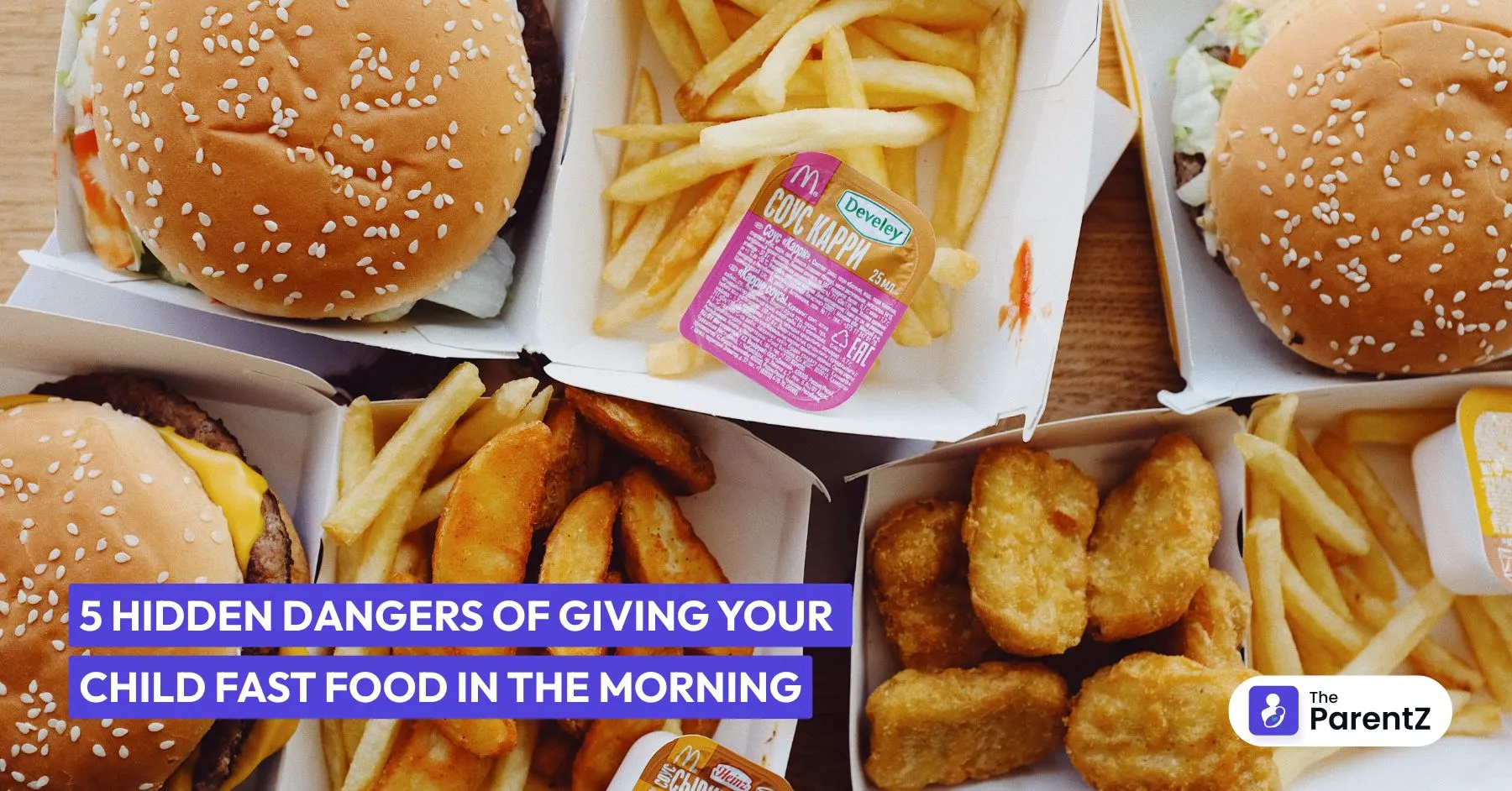A Quick Breakfast but at What Cost?
It’s Monday morning, the clock is ticking, and your child is still tying their shoes. The drive-thru window promises a quick fix—but behind that sausage sandwich or syrupy pancake lies more than just convenience.
While occasional fast food may not do harm, relying on it regularly for breakfast can quietly affect your child’s health and development in ways you may not expect.
Here are five hidden dangers of making fast food a morning habit for kids:
1. Sugar Crashes and Focus Failures
Many fast food breakfasts are packed with refined carbs and added sugars—think syrup-drenched pancakes, sugary juices, or sweetened cereals.
These cause:
- A quick spike in blood sugar followed by a crash
- Mid-morning fatigue and foggy concentration
- Irritability and trouble focusing in class
According to a Pediatrics journal study, kids who eat high-sugar breakfasts show poorer academic performance and more behavioral issues than those who eat balanced meals.
2. Unhealthy Weight Gain
Fast food breakfasts can be deceptively calorie-dense. A single meal may contain:
- 500–800+ calories
- High amounts of saturated fats
- More than 50% of a child’s recommended daily sodium
Over time, this can lead to:
- Childhood obesity
- Increased body fat and waist circumference
- Risk of Type 2 diabetes and heart problems
A study in the Journal of the American Dietetic Association found that children who frequently consumed fast food had higher body mass index (BMI) and poorer overall diet quality.
3. Digestive Distress and Poor Gut Health
Fast food breakfasts are typically low in fiber and high in processed fats and preservatives. This combination:
- Slows digestion
- Increases the risk of constipation
- Negatively affects the gut microbiome
Poor gut health can impact not just digestion but mood, immunity, and long-term metabolic health.
4. Sleep Disruption and Fatigue
You might think fast food energizes your child—but greasy, salty, and sugar-laden meals can backfire.
They cause:
- Restlessness
- Trouble falling asleep or poor sleep quality
- Daytime sleepiness and sluggishness
Sleep researchers have linked poor diet with disrupted melatonin levels, which regulate the body’s internal clock.
5. Reinforcing Unhealthy Habits for Life
The more frequently children eat fast food, the more they begin to:
- Crave salty, sugary foods
- Reject fruits, veggies, and whole grains
- Develop lifelong taste preferences for ultra-processed meals
Food habits formed in childhood often continue into adulthood. A 2021 study in Nutrients journal found that fast food consumption in early life strongly predicts dietary choices and chronic disease risk later in life.
A Healthier Start Is Possible
Busy mornings are real—but so are simple, nutritious alternatives that can be prepped ahead:
- Fruit + nut butter on whole wheat toast
- Boiled eggs + banana + milk
- Greek yogurt with honey + granola
- Homemade breakfast wraps or muffins (frozen ahead)
Even one small swap can make a big difference.
Conclusion: Choose Nourishment Over Convenience
Fast food isn’t evil, and using it in emergencies is understandable. But making it a regular breakfast choice can quietly impact your child’s physical, mental, and emotional well-being.
By understanding the hidden risks and planning small, nourishing tweaks, you’re not just filling their stomach—you’re feeding their future.
Because how your child starts their day can shape the way they grow.





Be the first one to comment on this story.